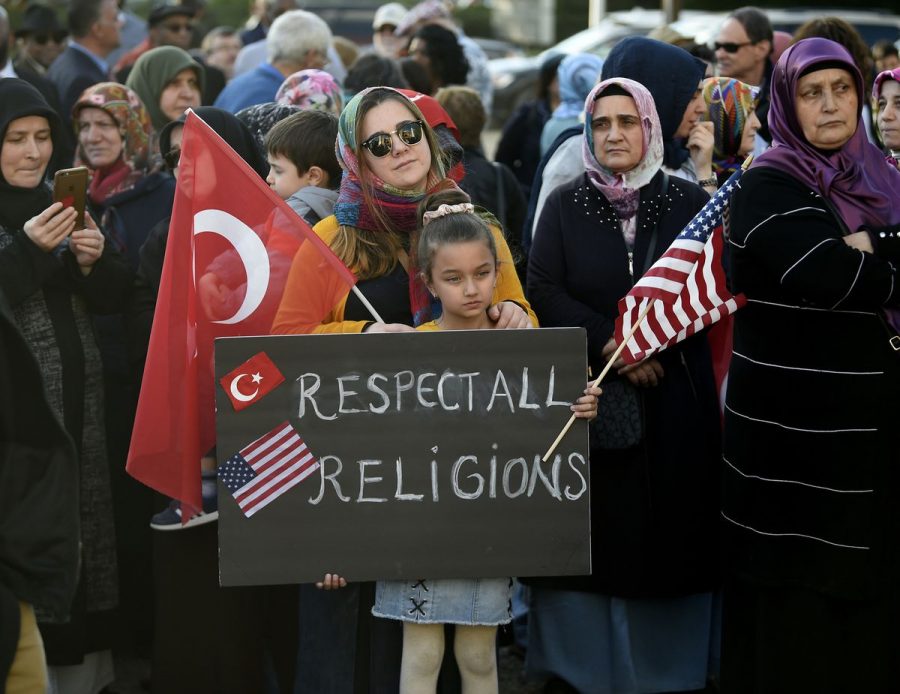Education prevents religious prejudice
Amidst the countless protests on abortion rights and police shootings, one topic remains unpublicized, a right that is considered one of America’s greatest freedom yet consistently ignored: religion.
Religious discrimination involves treating a person, usually of non-Christian affiliations, unfavorably because of their religious beliefs and connections. Taking various forms of actions, namely verbal harassment and employee accommodation, it is much like racial discrimination in that it will continue to divide this country unless a solution is put in place. In order to counter this, it is essential for people to receive a balanced education on various religions.
In a 2017 study, more than three million Americans consider themselves as Muslims, about one percent, while the Christian population decreased from 77 percent to 65 percent in a decade. In spite of all this, Christianity is frequently seen as the default religion in this country, and anyone who is of any other religious affiliation is negatively affected by this notion.
English classes have long required a basic understanding of certain Bible verses in order to understand Biblical allusions in literature. While Christian students benefit from such an inclusion, schools are less encouraging of incorporating other religions into their lesson plans. Beyond Christianity, schools should motivate teachers to explore various religions in both historical and literary contexts, which is entirely legal.
Without an honest and balanced education about religion, students will likely consume misleading information thrown to them by the media, leading to prejudice. Under the Bush and Obama administration, FBI engaged in religious profiling, agents were instructed that Muslims were likely terrorist sympathesizers and that the Prophet Muhammad was a cult leader, according to a report in Wired magazine.. And now, during the pandemic, Hindu nationalists in India have bashed religious minorities openly, blaming the Muslims for carrying the virus.
By giving mention to more religions outside of Christianity, students will be more comfortable with differentiating between reliable and fake news. However, we must also consider all aspects of a person’s identity, which entails differing disadvantages. An education that contains intersectionality can allow issues, like racism or sexism, to be taught together with religion.
Social movements like the #MeToo have also been used to combat issues in regards to sexual abuse and other social justice issues. With the platform that the #MeToo movement provided, women that were silenced because of fear were able to speak up. Unlike other minority groups, religious minorities don’t have access to the programs and platforms that the LGBTQ and BIPOC communities have.
Last year, Masarat, a non-profit organization in Iraq, established an educational program for Muslim students and clerics to educate them on different religions. Implementing programs like this in the United States would help promote equitable opportunities, spread accurate information and aid religious minorities in combating the persecutions they face.
We need to eliminate society’s problems by the roots, and there is no better way to do this than educating future generations. By changing the system internally, they will understand more about religious discrimination, allowing more people to have a stronger foundation about the facets of unjustified distinctions and prejudice.
Your donation will support the student journalists of Diamond Bar High School. Your contribution will allow us to purchase equipment and cover our annual website hosting costs.



